Projects
Prisons of the Future
Many countries are searching for alternatives to regular imprisonment, due to prison overcrowding or budget cuts. A current alternative to regular imprisonment is home detention, combined with electronic monitoring. Whereas imprisonment isolates offenders from society on almost all areas of life, home detention restricts only a few areas of life. A continuum of alternatives to regular imprisonment can be distinguished, varying from very high security levels, where inmates are totally separated from society, to very low security levels where offenders function in the community.
The Prisons of the Future project will be searching and researching alternatives to regular imprisonment and advise on innovative solutions for future implementation.
To get insight into alternatives to regular imprisonment in different countries
From current scientific knowledge on prisons, variables can be derived, such as the formal regime, the social climate, criminality and offenders’ characteristics, and outcomes. Outcomes vary from offenders’ changed behaviors, to offenders’ adaptation to the institutional context, and systemic effects such as recidivism, cost reduction and restoration to victims. On these variables a comprehensive framework will be built to describe alternatives to imprisonment.
To assess cross-national alternatives to regular imprisonment
Very few hard, evidence-based data are available on alternatives to regular imprisonment. From the methodological perspective of realist evaluation the project will focus on why interventions do (not) work in particular circumstances. Criteria are derived to assess alternatives and to define their working mechanisms.
To search the possibilities for implementing innovative prison options for the future
Innovative prison options for the future will be developed. Countries will share experiences and learn from each other how innovative prison options for the future can be implemented, taking into account the political and institutional context.
The objectives will be attained on the basis of a participatory policy analysis methodology which combines scientific insights and subjective and tacit knowledge. During the interactively shaped process different perspectives and arguments are intertwined and a comprehensive policy framework is built.
Within the project it is planned to organize three working sessions with three representatives of each country; a practice-oriented scientist, an expert-professional from the prison system, and a policy maker. Each working session will be prepared on the basis of input from external experts and national teams. The final results will be presented and debated during a concluding conference and in a final report.
- the first working session is oriented at drawing up national trends of penal policy in the last decade and alternatives that have been considered.
- the second working session selects a few best practices, such as an open, low security prison, and home detention with electronic monitoring, in order to assess them in depth on different criteria.
- the third working session focuses on exploring implementation problems that will be encountered by applying innovative prison options for the future and tackling these problems.
Number and types of beneficiaries
Primary beneficiaries are the participants in the working sessions. Secondary target groups are scientists, policy makers and prison practitioners in different countries who benefit from the intertwinement of practice-based, scientific and policy arguments. Finally, victims, offenders and the general public in Europe will benefit from innovative prison options which take into account different interests.
The project is aiming at achieving the following results:
- impression of a future landscape of prisons of the future
- common framework for analyzing and assessing alternatives to regular imprisonment and insight into working mechanisms of alternatives
- a comprehensive policy frame that combines retribution, rehabilitation and restoration
- a toolkit of innovative prison options and possibilities of application
Project Duration: 1.4.2014 – 31.3.2016
Lead Partner: Custodial Institutions Agency (CIA) Netherlands
Project Partners: Criminal Sanctions Agency RISE (Finland); Belgian Prison Service; Swedish Prison and Probation Administration; Department of Prisons and Probation (Denmark) Prison and Probation Department (Norway); EuroPris; CEP
Contact person: Saskia de Reuver CIA Netherlands, s.de.reuver@dji.minjus.nl.
Prisons of the future final report, Conclusion by Ioan Durnescu
Our knowledge of Alternatives to Pre-trial Detention

Related News
Check out the latest news and updates on this project’s focus area.
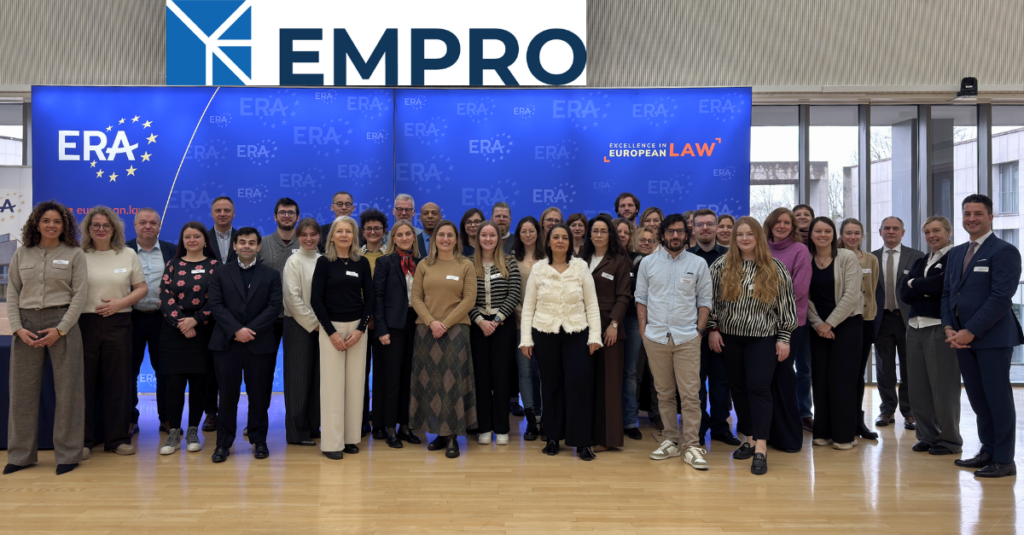
Uncategorized
CEP at the EMPRO Symposium hosted by ERA
04/02/2026
CEP actively contributed to the EMPRO Knowledge Exchange Symposium hosted by the Academy of European Law (ERA) in Trier on 28–29 January, bringing together practitioners, policymakers, and researchers to reflect on the implementation of EU Framework Decisions in probation and supervision.

Alternatives to pre-trial detention, Community Sanctions and Measures, Framework Decisions, Technology
Future of Criminal Justice: CEP’s Contribution to Key 2025 Dialogues
27/01/2026
Throughout 2025, CEP and its representatives actively participated in the online Technical meetings ahead of the HLF as well as the High Level Forum on Future of Criminal Justice taking place on 4-5 March 2025, 20-21 May 2025 and 1-2 October 2025 in Brussels, Belgium.
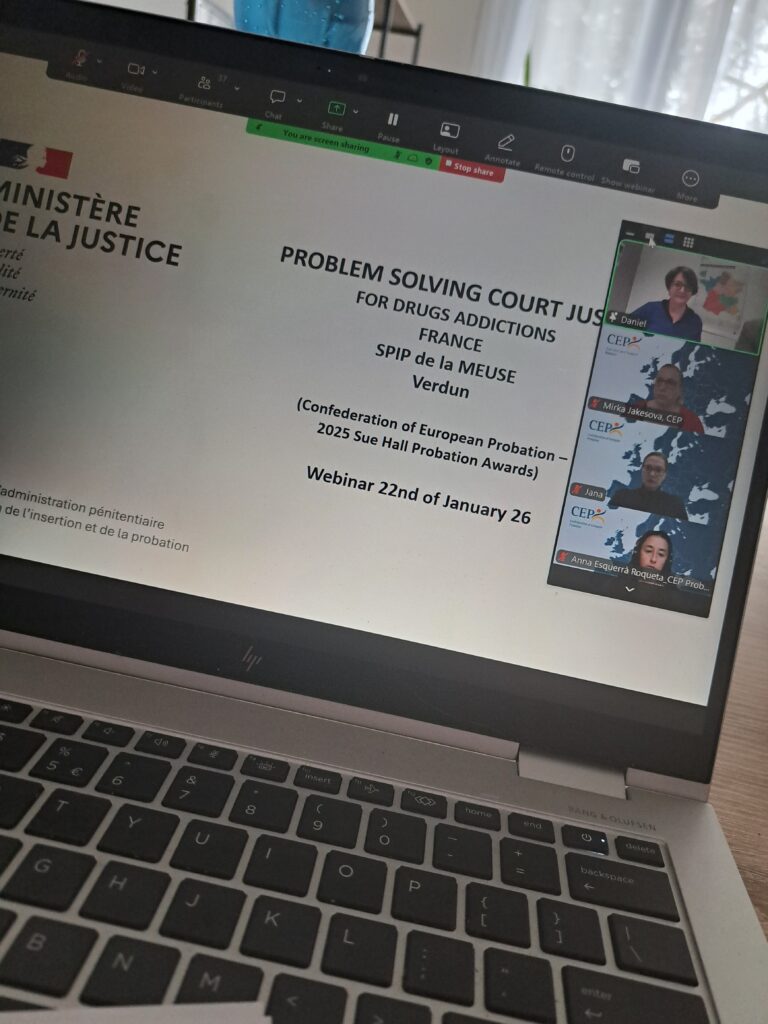
Alternatives to pre-trial detention
Recap: Webinar on Alternatives to Detention 2026
26/01/2026
On Thursday 22 January, CEP hosted the first webinar of 2025 on the topic of Alternatives to Detention. The session led by Ms. Marina Pajoni from the French Prison and Probation Service titled „Problem Solving Justice in Pracitce: The Meuse Probation Service´s Approach to Drug Addiction“ introduced an innovative programme developed by the Meuse Probation Service in close cooperation with the French Ministry of Justice.
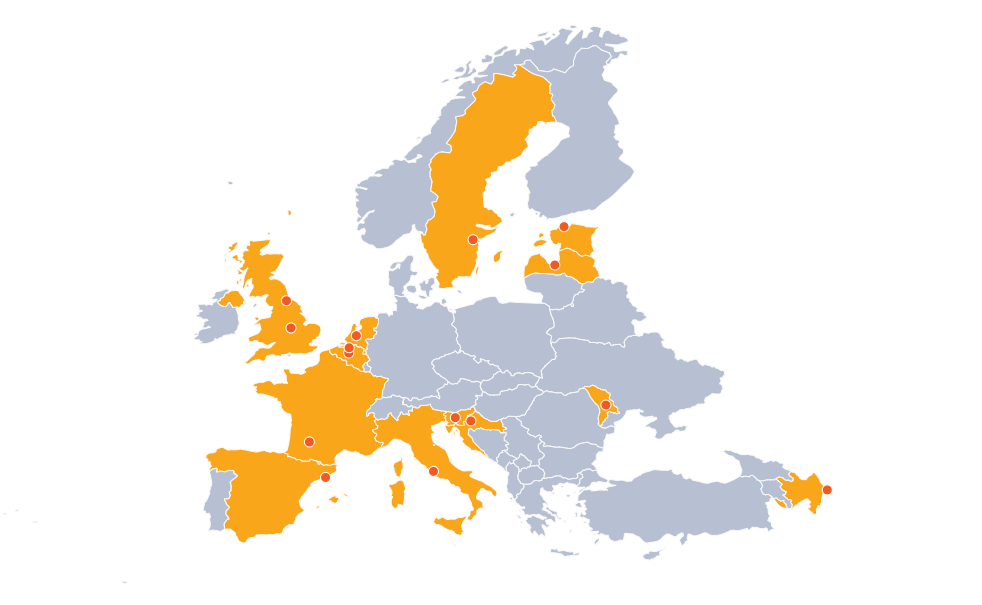
Education and Training
CEP launches an interactive European map of probation education and training institution contacts
22/01/2026
The CEP is pleased to inform its members that a new dedicated section has been developed on the CEP website featuring an interactive map of Europe.
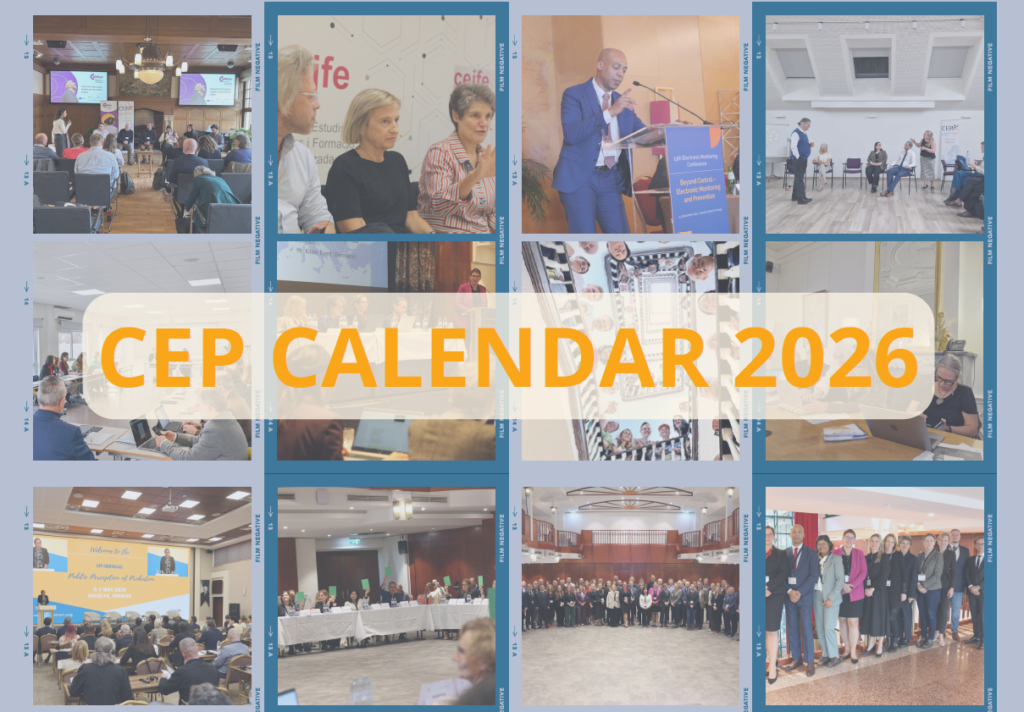
CEP Events
CEP activity calendar 2026
20/01/2026
As we begin the new year, we would like to thank all CEP members, partners, and participants for your continued engagement and valuable contributions. Your involvement plays an essential role in shaping CEP’s work and activities.
We are pleased to share the CEP calendar for 2026, which provides an overview of the events planned for the year ahead. We look forward to continuing our collaboration and welcoming you to upcoming CEP activities throughout the year.
Thank you for being part of the CEP community.
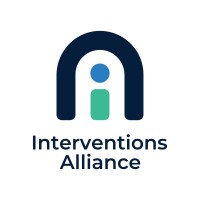
CEP members, Gender-based violence
Interventions Alliance’s Eden House Recognized as Outstanding
15/01/2026
CEP is delighted to share that Eden House, an Interventions Alliance residential service for women with high-risk or complex needs on probation, has been rated “Outstanding” overall by HM Inspectorate of Probation. In 2022, Eden House was honored with the CEP Public Protection Award. Our sincere congratulations to the team for this remarkable achievement.
Subscribe to our bi-monthly email newsletter!
"*" indicates required fields
- Keep up to date with important probation developments and insights.

